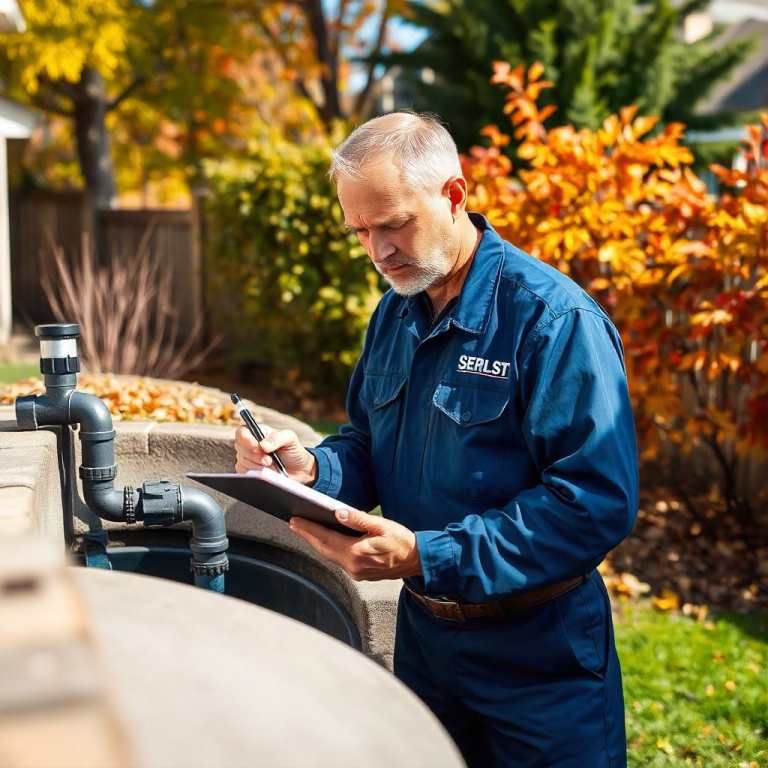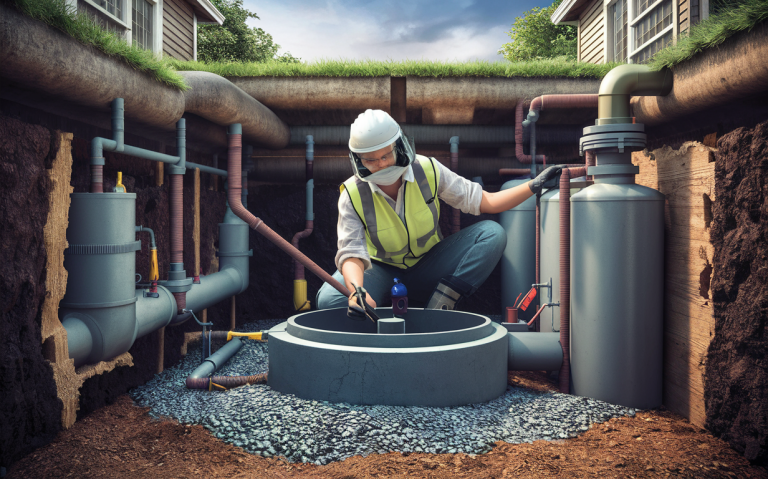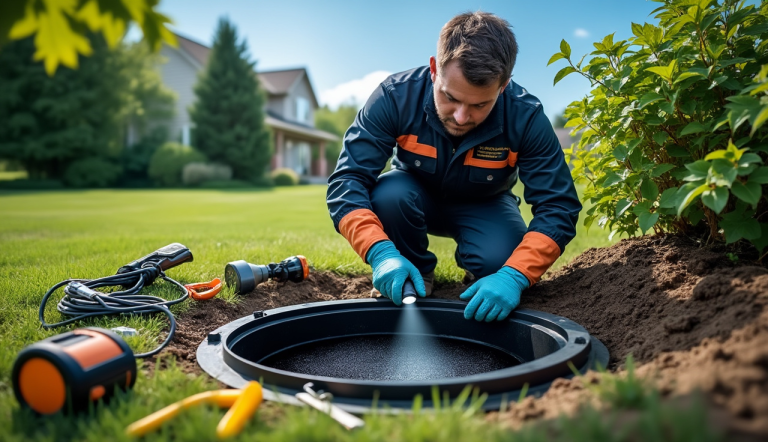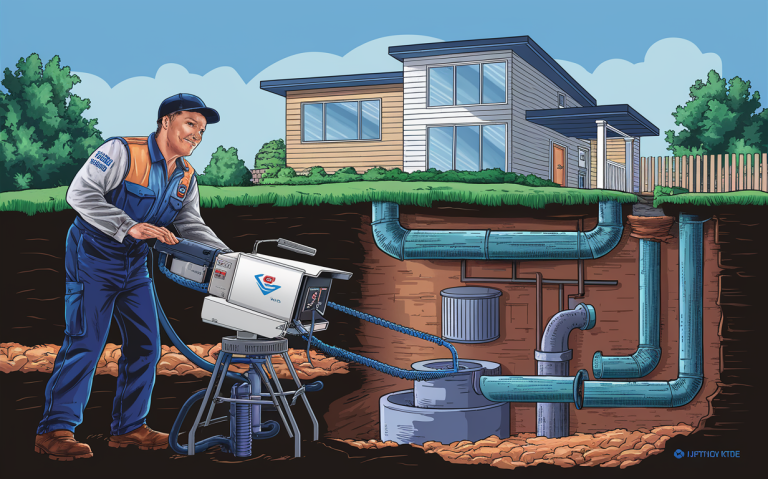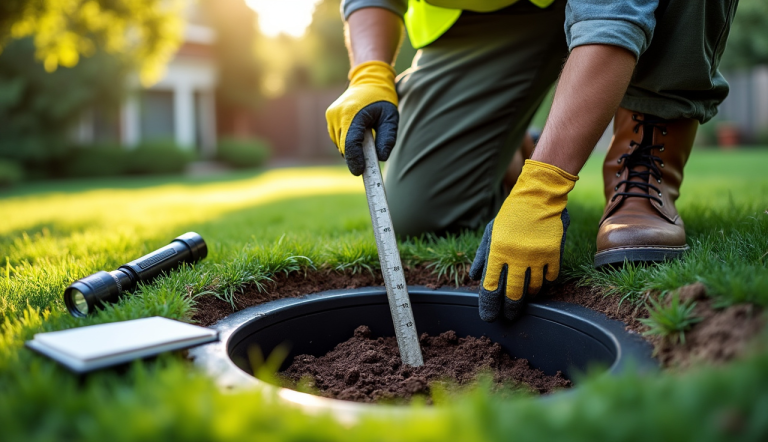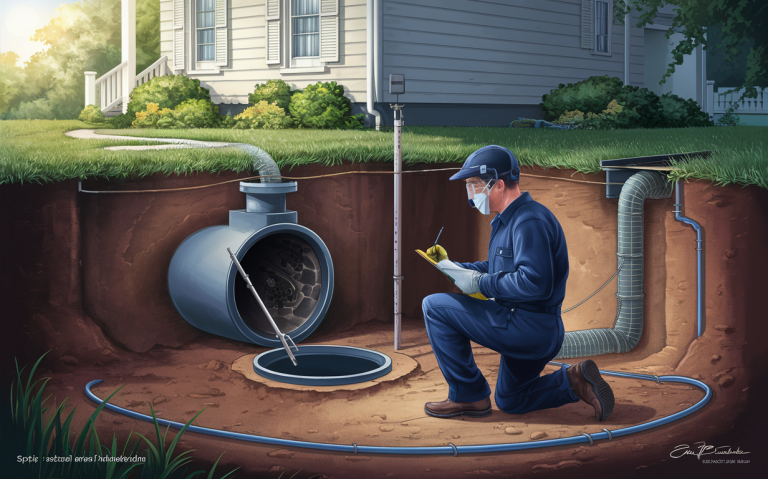Common Septic System Problems: Fix & Prevent Now
Dealing with septic system problems can be a real headache, but understanding the common issues and how to address them can save you a lot of trouble and expense. This Common Septic System Problems will explore the most frequent septic system problems, provide solutions, and offer tips to keep your system running smoothly.
Table of Contents
Key Takeaways
- Septic tank problems often involve issues like clogging, leaks, and system overflows.
- Maintenance and regular inspections are crucial for preventing most septic system problems.
- Signs of septic system failure include foul odors, slow drains, and water pooling in your yard.
- Early detection and prompt action can save you time, money, and stress.
Understanding the Basics Common Septic System Problems
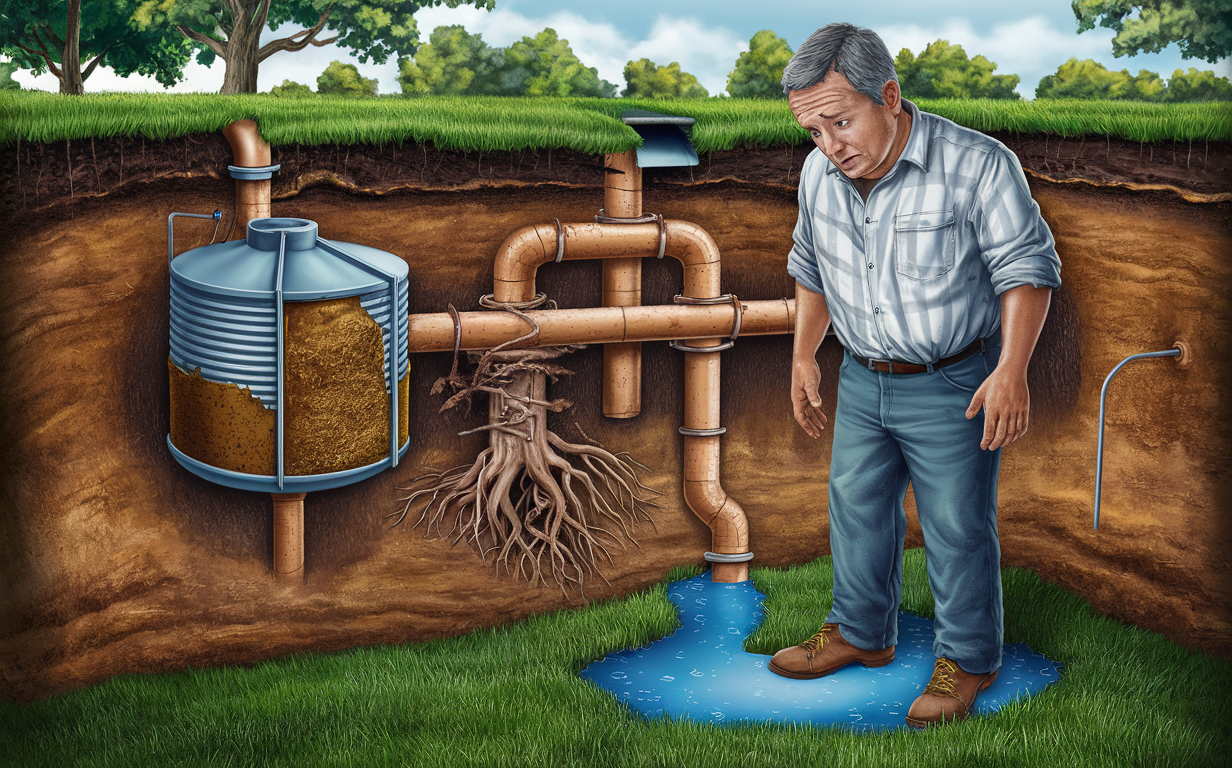
A septic system is an underground wastewater treatment structure commonly used in rural areas without centralized sewer systems. It consists of a septic tank and a drain field or soil absorption field. The tank digests organic matter and separates floatable matter (e.g., oils and grease) and solids from the wastewater.
Soil-based systems discharge the liquid (known as effluent) from the septic tank into a series of perforated pipes buried in a leach field, chambers, or other special units designed to slowly release the effluent into the soil.
Signs Your Common Septic System Problems
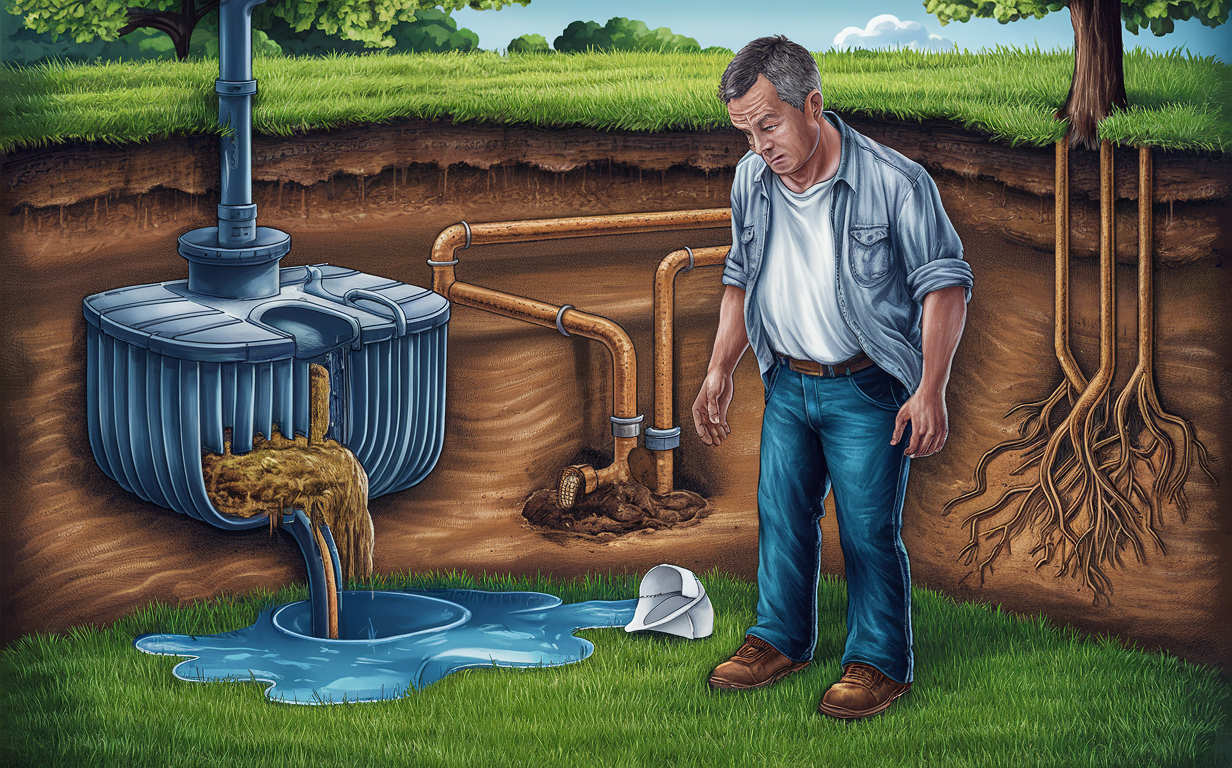
Slow Drains
Slow drains in your sinks, showers, or bathtubs can indicate a clog in your septic system or that your tank is full. This is often one of the first signs that something is amiss.
Foul Odors
A properly functioning septic system should not emit foul odors. If you notice a strong smell of sewage either inside your home or near your septic tank and drain field, it’s a sign that something is wrong.
Sewage Backup
One of the most unpleasant signs of a failing septic system is sewage backup. This can occur in your toilets, sinks, and bathtubs and is a clear indicator that your septic tank or drain field is not working correctly.
Water Pooling in Yard
If you notice water pooling in your yard, particularly around the drain field, it could mean that your septic system is overloaded or failing.
Lush Grass Around the Drain Field
While it might seem like a good thing, unusually lush and green grass around your drain field can indicate that your septic system is leaking and releasing excess water and nutrients into the soil.
Common Septic System Problems and Solutions
Clogs and Blockages
Clogs can occur in the pipes leading to the septic tank or in the drain field, causing backups and slow drainage. Regular pumping and proper waste disposal can help prevent this issue.
Leaks
Leaks in the septic tank can lead to contaminated groundwater and surface water. Regular inspections can help identify leaks early.
Overloading the System
Using too much water in a short period can overload the septic system. Spread out laundry loads and be mindful of water usage to prevent this problem.
Tree Root Infiltration
Tree roots can infiltrate your septic system, causing blockages and pipe damage. Regular inspections and keeping trees away from your septic system can prevent this issue.
Inadequate Maintenance
Neglecting regular maintenance can lead to various problems. Regular pumping, inspections, and proper waste disposal are essential for keeping your system running smoothly.
Preventive Measures for Septic System Health
Regular Inspections
Having your septic system inspected by a professional at least once every three years can help catch Common Septic System Problems early.
Routine Pumping
Septic tanks should be pumped every three to five years, depending on household size and usage.
Water Conservation
Using water efficiently can prevent overloading the septic system. Fixing leaks, installing water-saving fixtures, and spreading out water usage can help.
Proper Waste Disposal
Avoid flushing non-biodegradable items, grease, and chemicals down the drain. These can cause blockages and damage to your septic system.
Unique Data on Common Septic System Problems
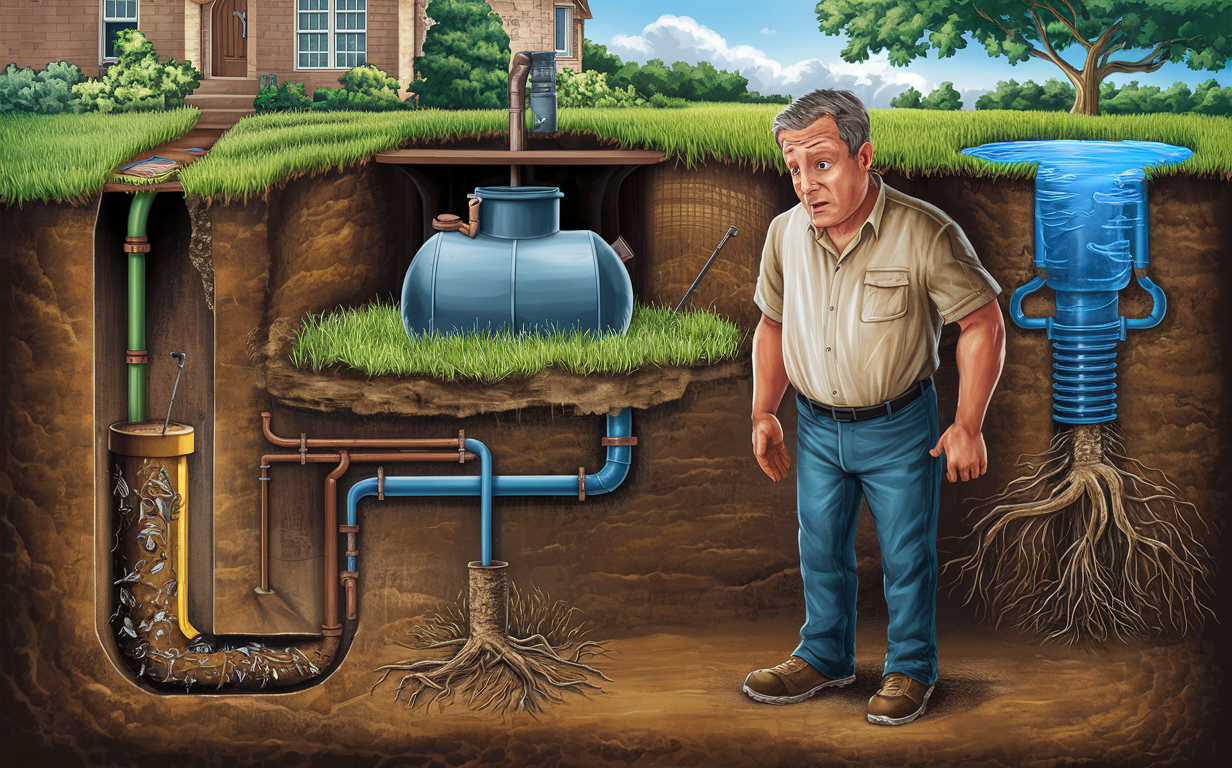
Septic System Issues and Their Impact
| Issue | Impact | Solution |
|---|---|---|
| Clogs | Slow drains, backups, sewage overflow | Regular pumping, avoid non-biodegradable waste |
| Leaks | Environmental contamination | Regular inspections, repair or replace tank |
| Overloading | System overload, backups | Water conservation, staggered usage |
| Tree Root Infiltration | Blockages, pipe damage | Keep trees away, regular inspections |
| Lack of Maintenance | System failure, costly repairs | Routine maintenance, regular pumping |
Signs of Septic System Failure and What They Mean
| Sign | Possible Cause | Action Needed |
|---|---|---|
| Slow drains | Clogs, full septic tank | Schedule pumping, inspect for clogs |
| Foul odors | Leaks, system overload | Inspect for leaks, reduce water usage |
| Sewage backup | Clogs, full septic tank, overloaded system | Schedule pumping, inspect for clogs |
| Water pooling in yard | Drain field failure, system overload | Inspect drain field, reduce water usage |
| Water pooling in the yard | Leaking system, excess nutrients | Inspect for leaks, schedule maintenance |
Tips for Common Septic System Problems Homeowners
Use Water Efficiently
- Fix leaks and drips promptly.
- Install water-saving fixtures.
- Avoid doing multiple loads of laundry in one day.
Be Mindful of What You Flush
- Do not flush non-biodegradable items.
- Avoid pouring grease and chemicals down the drain.
Schedule Regular Maintenance
- Have your septic system inspected every three years.
- Pump your septic tank every three to five years.
Key Takeaways
Maintaining a healthy septic system requires regular inspections, proper waste disposal, and mindful water usage. Common Septic System Problems like clogs, leaks, and overloading can often be prevented with routine maintenance and early detection. By taking these steps, homeowners can avoid costly repairs and ensure their septic system runs smoothly for years to come.
Final Thoughts
Common Septic System Problems can be daunting, but with the right knowledge and preventive measures, you can keep your system in good working order. Remember to schedule regular maintenance, use water efficiently, and be mindful of what you flush. By staying proactive, you can avoid many common septic system issues and enjoy a trouble-free home environment.
Common septic system problems, solutions, and prevention tips. Learn to identify issues, maintain your system, and avoid costly repairs for your home’s wastewater treatment. For more information, you can visit our website or contact us.

